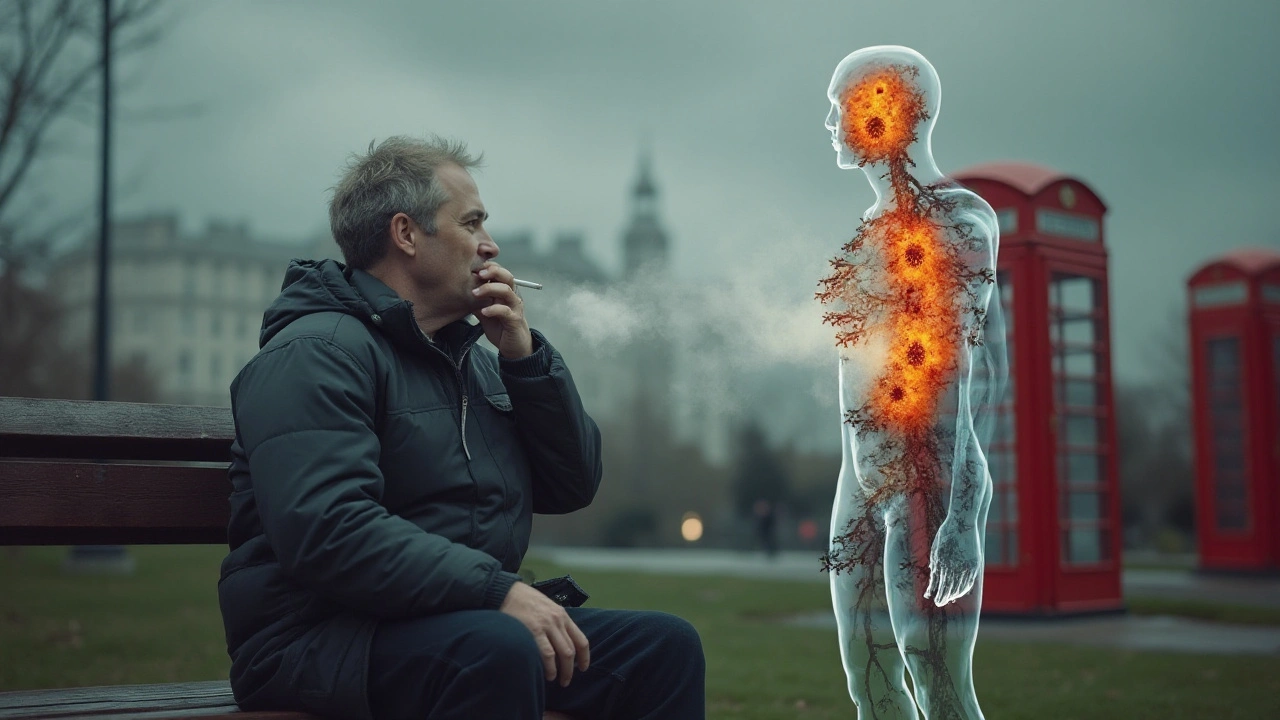How smoking damages your immune system — and what to do about it
Smoking doesn’t just harm your lungs — it weakens the whole immune system. This month we focused on one clear message: tobacco and vaping chemicals change how immune cells work, raise your chance of infections, and blunt how well vaccines and healing work. If you want straightforward facts and practical steps, this summary gives you exactly that.
How smoking harms immune defenses
Tobacco smoke contains thousands of chemicals that interfere with immune cells. Nicotine and toxins reduce the activity of neutrophils and macrophages — the cells that normally eat bacteria and clear debris. The tiny hairs (cilia) lining your airways slow down, so germs sit longer and infections take hold easier. Smoking also causes chronic inflammation: immune signals stay turned on in the wrong way, which wears out useful defenses and makes tissue damage worse.
Smokers get respiratory infections more often — things like bronchitis, pneumonia, and worse outcomes from the flu. Research has shown weaker antibody responses after vaccination in smokers, meaning vaccines may protect less effectively. Smoking is linked to slower wound healing, higher rates of certain infections such as tuberculosis, and more severe COVID-19 outcomes in past studies.
Practical steps to restore immune health
Quitting smoking is the single best move. You don’t need to be perfect to get benefits: cilia start to recover within weeks, and immune cell function shows measurable improvements in months. Over years, many infection risks drop significantly, and healing gets better.
Other steps that help while you quit or after quitting: get recommended vaccines (flu, COVID, pneumococcal if advised), avoid secondhand smoke, eat a balanced diet rich in vitamin C, D, and zinc, sleep well, and stay active. If you have ongoing health issues, see your doctor — they can check for vaccine response, treat infections early, and recommend stop-smoking aids like nicotine replacement or medications.
Quick tips that actually work: set a quit date, remove ashtrays and lighters, tell friends and family you’re quitting, and use a combination of counseling plus nicotine replacement or prescription help. Small wins add up — even reducing tobacco use improves immune markers.
Want more details? Read the full article published this month on our site for clear explanations of the biology, real-world examples, and step-by-step help to protect and rebuild your immune health after smoking.

